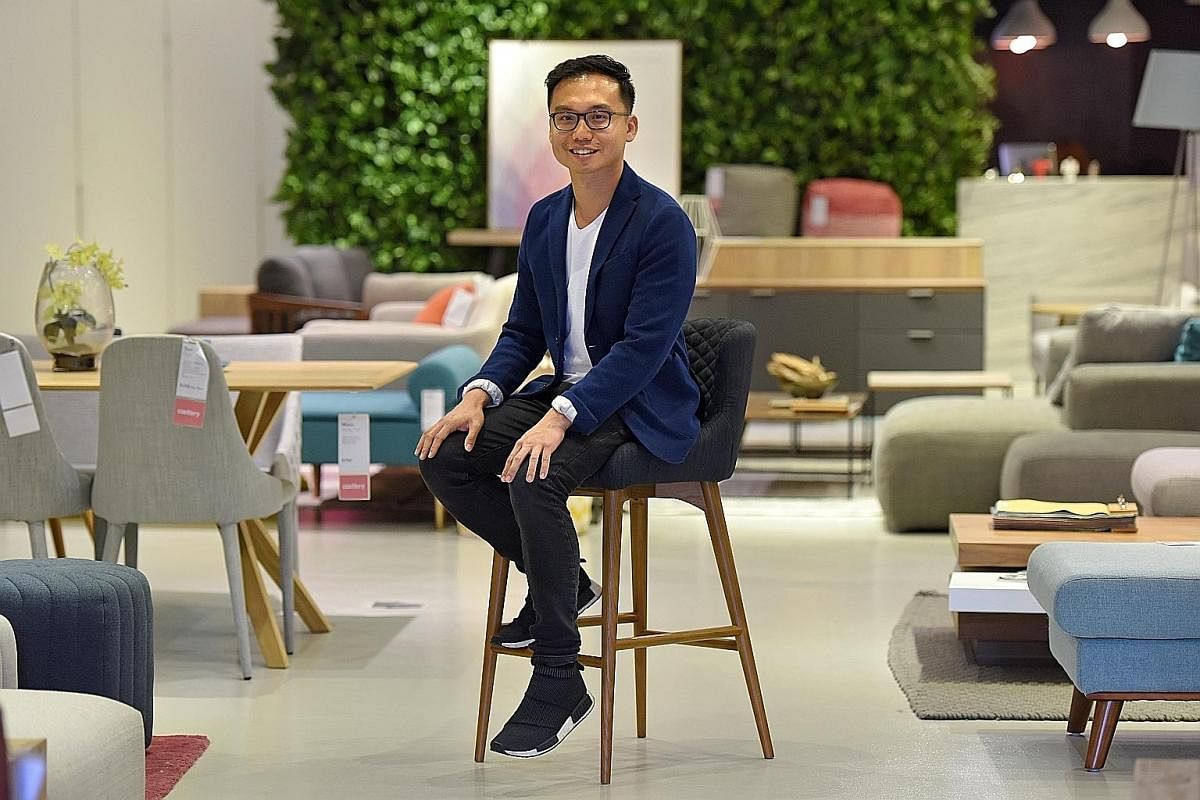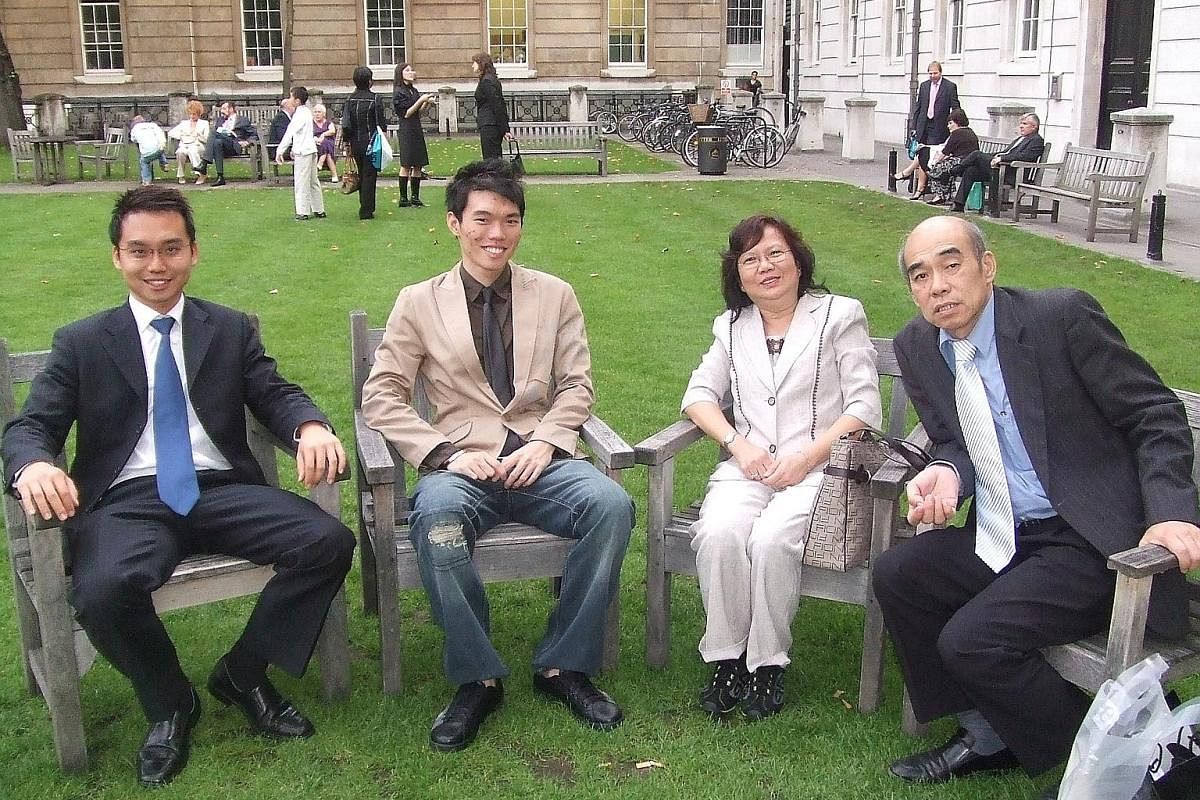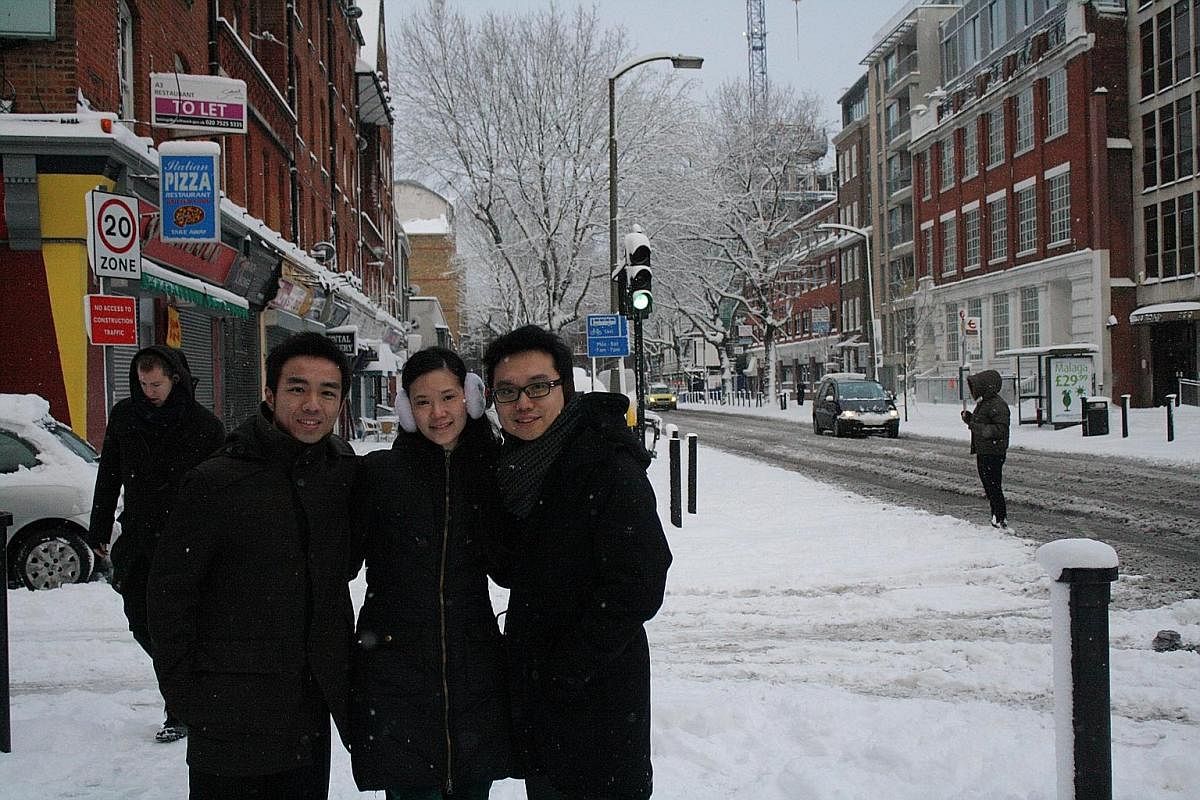The Life Interview With Declan Ee
The Life Interview with Declan Ee: Castlery's co-founder carves a niche in the furniture market
Online furniture shop Castlery's Declan Ee positions his brand to fill the gap between mass market and luxury offerings



Looking back on Mr Declan Ee's pursuits, the 34-year-old's career trajectory has hardly been predictable.
He studied law at University College London, but ditched that path and went on to crunch numbers as an investment banker. On the side, he spun electronic dance music at the famed Ministry of Sound club in the English capital.
He then returned to Singapore to continue his banking career and also became an investor-entrepreneur.
Ever the Renaissance man, it did not come as a surprise then, when Mr Ee decided to set up Castlery - an online furniture shop - with two friends in 2013.
Just four years in, the young start-up is a success story - and one of Mr Ee's smartest career moves .
For home owners looking for stylish, affordable designs in between mass-market flat-pack furniture and pricey luxury brands, Castlery fills the mid-range market nicely.
At the start, a small team worked out of a dinky 500 sq ft corner in a basement space in Ubi to get it up and running. Their office had just two sofas, a few computers and a makeshift cardboard-box table. All the business was done online.
In the first month that the brand went live, Castlery made about $2,000 in sales from an armchair, a sofa and a few light bulbs. By early 2015, it drew about $250,000 a month.
Today, the brand has a chic showroom in Alexandra Road. Spanning a whopping 12,000 sq ft, it is filled with an extensive range of furniture such as light fixtures, tables, sofas and bed frames.
In May, the brand launched a new line called Castlery Feat, in which it teamed up with award-winning international designers - the first time Castlery has done so. Previously, its furniture was either designed in-house or bought from factories.
Castlery also has a majority stake in a factory in China, which produces the brand's top-selling furniture and some of its in-house designs. Prices range from $369 for an armchair to $1,599 for a three-seater sofa.
The quick success of Castlery surprised Mr Ee.
He says: "At the start, we were excited just to sell one light bulb. I never thought we would even be making and designing our own furniture. We talked about eventually opening a shop, but at that time, it was just talk."
Random talk was exactly what launched Castlery.
Instead of shopping at local stores for furniture when he was decorating his home in 2012, Mr Ee bought most items on his trips overseas or refurbished old furniture he found here by himself.
He lives in a shophouse in Katong with his wife Sheryl Ang, 33. The couple have two sons aged two and eight months.
Some of their haul included a customised sofa from Bali and a French handcrafted table from a furniture store in the Cotswolds in south-central England that cost them less than $3,000. Even with shipping costs, Mr Ee says he still paid less than similar-styled furniture he liked here.
He shared his experience with his friend, Mr Fred Ji, who had asked him a year later for advice on where to go to decorate his condominium apartment.
Mr Ee says: "Everything here was either too mass-market or expensive. The items I bought overseas were of great value and still cheaper."
The pair met when Mr Ji, 30, was working at a technology and media start-up that Mr Ee had invested in. There, they bonded over music and stayed good friends even after the start-up failed and shut down .
With Mr Ee's advice to shop for furniture beyond Singapore, Mr Ji discovered that he could get cheaper furniture by going directly to factories in the region.
Mr Ee, who does branding and strategy and looks after the creative aspects of Castlery, says: "I joked and said we should just sell furniture now that we know where to go and how to buy it. To Fred's credit, he dug deeper, did the sums and realised that we could do it."
Buoyed by the success of similar platforms such as London-based brand Made.com that designs and retails homeware and furniture online, they decided to have a go at it.
Another co-founder, Mr Zhou Zhiwei, 30, is the company's chief technology officer. Mr Ji and Mr Zhou met when they were university students here.
Mr Ji, 30, the chief executive officer of Castlery, says Mr Ee was the one who convinced him to plunge into unfamiliar territory.
"Great partners don't come easy in any business," says Mr Ji when asked about going into business with good friends.
Mr Ji says their partnership works because of Mr Ee's personality. "He is smart and resourceful. He is also open to different opinions and ideas. Declan always connects with the people around him."
With his cheerful, fast-talking manner, it is hard to imagine that Mr Ee, who is the face of Castlery and often does interviews to promote the brand, describes himself as an awkward loner growing up.
The Raffles Institution and Raffles Junior College alumnus was often plugged into his Discman, devouring everything from jazz to Chinese ballads. Music gave him comfort from the stress of trying to fit in with his peers and do well at school.
Mr Ee, who was in his secondary school's Chinese orchestra, says: "When I reached Secondary 3, teenage angst set in. I wanted to be a cool 15-year-old and be the best at many things such as sports. I put a lot of pressure on myself to do well. But I just felt lousy about myself and was emotional."
In junior college, he joined the school's drama club and was involved in musical productions. He made props and helped out backstage for one and was cast as the male lead in another.
There, he got a huge shot of confidence. "I found a sense of belonging with the cast and crew. I felt good that I had accomplished something."
He got a further boost at 19 when his father sent him overseas to take part in motivational talks by life coaches such as the famed self-help guru Tony Robbins. This, he says, helped him sort out his internal struggles.
At these sessions, Mr Ee, who has a younger brother, met high-flying executives who were "successful but unhappy". He took the chance to ask them about how they built their careers and where they had gone wrong in life.
"They were honest and unguarded with me because I was young and not someone they saw as competition. Those talks shaped my personality and I got advice on how to balance being practical and competitive with my passions."
His businessman father, Mr Ee Kong Ngik, 72, says he saw a change in his son after those difficult teenage years.
"Declan definitely matured in the way he dealt with people. He developed a certain self-belief and single-mindedness in pursuing his goals. I think the talks also helped him realise being successful at work and studies does not equate to happiness. "
Besides becoming more sociable, Mr Ee's budding entrepreneurial side kicked in. During his national service days, he started a graphic design company with a friend.
He handled the business side of things and continued taking on jobs from London when he started his undergraduate degree in law.
It was a good gig that gave him a decent amount of pocket money. But he eventually sold his stake in the company after his first year of university.
Bored with law school, he often wrote songs. With a growing collection of music, he latched on to the idea of staging a musical at the university's theatre studio.
He did everything from writing the script and composing the songs to handling its promotions - all to make his musical dream come true.
By the end of 2004, he pulled it off. Pagoda Street, a story based in Singapore that revolved around love, deceit and redemption, opened to good reviews. All five shows were sold out. He self- funded the musical with money he got from selling his graphic design business.
He brought the musical to Singapore a year later, with two months to get it ready.
Staged at the Esplanade, he took a risk working with inexperienced actors and threw himself into directing and producing the show. He was even more stressed out when the lead actress walked out a day before the show - no thanks to his demanding behaviour.
Mr Ee recalls: "The whole thing broke down. I was screaming at people all the time... I was just an a**hole. It was one of the most stressful periods in my life."
The show went on - he begged an actress friend to fill the role at the last minute - but by the end of it, he was ready for a break and to let the music take a backseat in his life.
In the last year of university, he met his wife, who was there on an exchange programme at Cass Business School from Singapore Management University.
They met on her last day in London and kept in touch after she returned here. The couple were in a long-distance relationship before Ms Ang moved to London in 2007. They got married in 2012.
After graduating in 2006, he lived in London with a plan to work there for a few years. He applied to various banks for an investment banking job as it was the "flavour of the time", he says.
It threw him off when he kept getting rejected. So, he holed himself up for about three weeks and read everything there was to know about finance. He then rejigged his applications and sent them out again.
He finally snagged a position as a financial analyst in the subprime mortgage department at Lehman Brothers. It was a fast-paced industry where employees worked hard, but led excessive lifestyles and had extravagant parties.
He knew the bubble would eventually burst, but when the collapse of Lehman Brothers happened in 2008, it still shocked him deeply. He says: "I saw grown men break down because they lost everything. Their life savings were gone just like that. I planned to build my life as a banker, but after that, I thought 'forget it'."
During that period of uncertainty, he turned to music again.
This time, he explored DJ-ing and bought decks to practise mixing music after work. His goal was to eventually play at London's Ministry of Sound, one of the most iconic nightclubs in the world.
Using his networking skills, he got to know the booking person at the club and charmed his way into a set at one of the smaller rooms in the club. He promised the booker that he would pull in 60 friends to see him play. On the night of his DJ debut, about 100 people turned up.
Mr Ee, who eventually did a nine-month residency there where he played once a month, says: "It took my mind off everything that was happening at work. It was just something fun to do and gave me a chance to explore music again."
At the same time, he started making plans to help him exit the banking industry eventually.
He put some of his bonus money into non-finance companies such as technology start-ups and into the stock market. He also parked his money in a private investment firm that was started by a friend.
He returned to Singapore in 2010 to work in the Asia equities division of Nomura, a global investment bank that acquired the European and Asian arms of Lehman Brothers after its collapse.
Mr Ee, who was working at Nomura's London office, had asked to be transferred back here. He did not completely leave the industry until just last year and worked on growing Castlery while transitioning out of investment banking.
He says: "Castlery is one of the best things that I got started on. I get to work with my good friends, so it doesn't feel like a job."
Even with lots on his plate, Mr Ee found time to start Trouze, an electronic music collective, in 2015. The other members are Mr Tat Tong, his former schoolmate and an award-winning producer-songwriter, and Mr Jovany Javier, a Cuban-American singer and American Idol Season 10 contestant.
Their debut feature single Age Of Innocence, a track by US DJ Elephante, which also features Grammy-winning American songwriter Damon Sharpe, peaked at No. 18 on the Billboard Dance Club Songs chart last year .
It is a constant juggling fest for Mr Ee, who also tries to be a hands-on father even though he travels often.
"People often ask me where I have the time to do everything. I didn't plan on doing so many things at the same time... I'm just looking to be part of things I'm passionate about.
"So, even if it means I have to take on five jobs to get there, I'm going to make the most of it."
Correction note: The credit for the main photo was edited for accuracy.
Join ST's Telegram channel and get the latest breaking news delivered to you.
A version of this article appeared in the print edition of The Straits Times on July 24, 2017, with the headline The Life Interview with Declan Ee: Castlery's co-founder carves a niche in the furniture market . Subscribe

